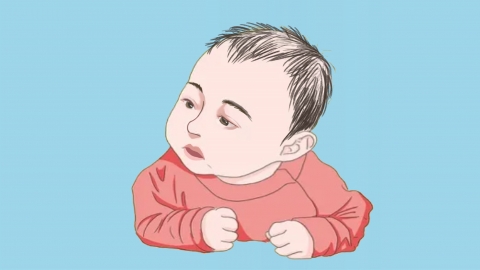What are the manifestations of children with intellectual disabilities?
Intellectually disabled children usually refer to children with intellectual developmental disorders. Generally, the main manifestations of children with intellectual developmental disorders include delayed language development, poor cognitive ability, delayed motor skills, difficulties in social interaction, and weak self-care abilities. If a child shows any signs of discomfort, it is recommended to seek timely evaluation and diagnosis at a reputable hospital. Specific analyses are as follows:
1. Delayed Language Development
Underdeveloped language centers in the brain affect language comprehension and expression abilities. These children start speaking later than their peers, possibly still unable to say simple words at ages 2-3, or their speech may be incomplete and difficult to convey clearly. They also respond slowly to verbal instructions from others.

2. Poor Cognitive Ability
The brain's capacity to process, remember, and understand information is insufficient. Children struggle to distinguish common objects' uses, cannot accurately recognize colors, shapes, or numbers, learn new knowledge slowly, and have difficulty retaining memories. They also find it hard to think independently and solve even simple problems.
3. Delayed Motor Skills
Delayed development of the nervous system's control and coordination of muscles causes milestones such as head control, rolling over, sitting, crawling, and walking to occur later than in typically developing children. Fine motor skills, such as grasping toys or tying shoelaces, are also clumsy, with poor coordination and a tendency to fall easily.
4. Difficulties in Social Interaction
These children struggle to understand others' emotions and social cues, lack the initiative to communicate with others, do not engage in eye contact or respond with smiles, cannot integrate when playing with peers, do not share toys or participate in group games, and show indifference to others' attempts at interaction.
5. Weak Self-Care Ability
Due to insufficient cognitive and motor abilities, children cannot independently complete basic life skills such as dressing, brushing teeth, eating, or using the toilet, requiring long-term assistance. They also lack judgment regarding dangerous situations in daily life, such as failing to avoid hot water or sharp objects.
If any of the above manifestations are observed in a child, patience is required in daily life to guide the child in learning basic skills, using simple and easy-to-understand teaching methods repeatedly. Increased verbal and emotional interaction with the child can promote the development of language and social skills. Suitable physical activities should be selected based on the child's abilities to improve limb coordination. Regular hospital follow-ups and assessments should be conducted, and rehabilitation plans should be developed according to professional guidance to help the child gradually enhance their abilities.






